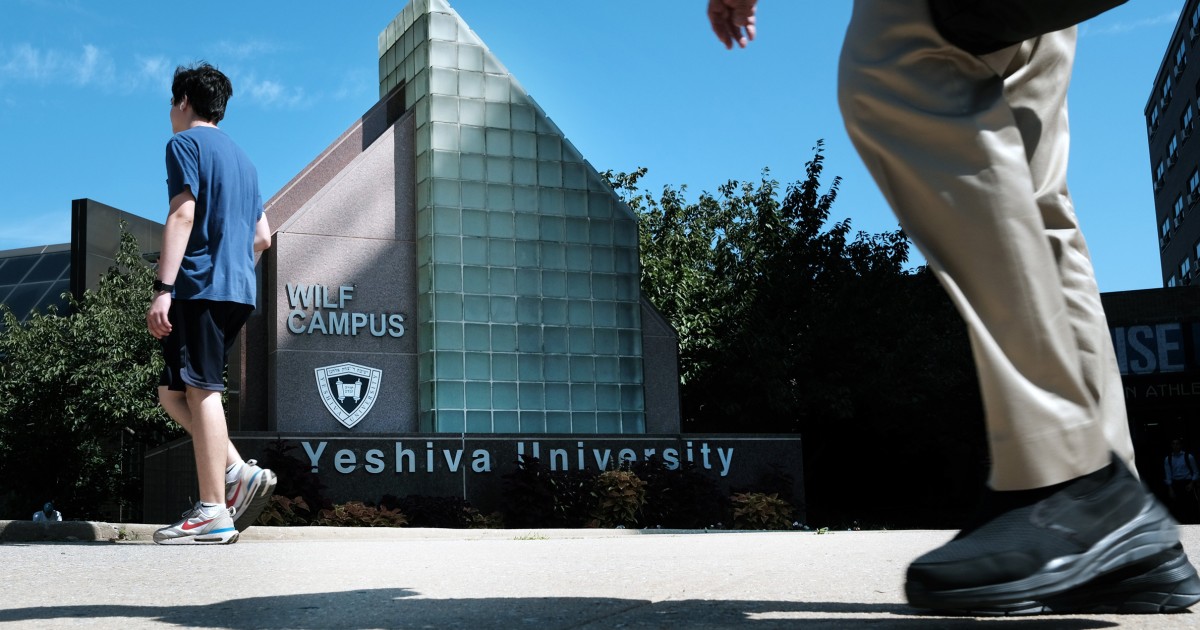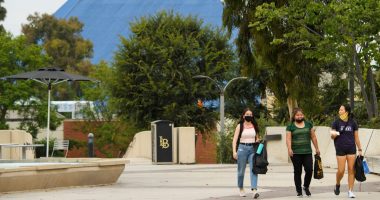
The Supreme Court on Wednesday said that an Orthodox Jewish university in New York is required for now to officially recognize an LGBTQ student group, in a rare legal defeat for religious rights.
In a 5-4 vote, the justices rejected an emergency request made by Yeshiva University, which claims that recognizing the group would be contrary to its sincere religious beliefs.
The decision leaves intact a decision by a New York state judge, who ruled in June that the university was bound by the New York City Human Rights Law, which bars discrimination based on sexual orientation. The university argues that it is a religious institution and therefore should be exempted from the law. Requiring the school to endorse the group would be a “clear violation” of its First Amendments rights, which protects the free exercise of religion, it said.
Justice Sonia Sotomayor last week imposed a temporary hold on the state court ruling, giving the court more time to consider the request. Wednesday’s court order said the university could turn to the high court again if it is not able to block the ruling in New York state courts.
Four of the court’s six conservative justices dissented, saying the court should have intervened immediately.
“I doubt that Yeshiva’s return to state court will be fruitful, and I see no reason why we should not grant a stay at this time. It is our duty to stand up for the Constitution even when doing so is controversial,” wrote Justice Samuel Alito.
The LGBTQ Pride Alliance group, which first sought recognition from the university in 2019, sued in April 2021, saying the school was required to grant its request because it is a place of public accommodation that is covered by the antidiscrimination law.
Yeshiva, which describes itself in court papers as “a deeply religious Jewish university,” has said that officials concluded after consulting with Jewish religious scholars that an official LGBTQ club would be inconsistent with its religious values. The university was founded in 1897 for religious purposes and says it maintains that character even as it expanded its educational scope to include secular programs
The New York antidiscrimination law includes an exemption for religious organizations, but Manhattan-based Judge Lynn Kotler concluded that Yeshiva did not meet the relevant criteria.
Pride Alliance, joined by four individual plaintiffs, said in its response that the university’s request was premature and questioned whether it was facing an emergency. All the university would be required to do is provide the group access to the same facilities that 87 other groups already receive.
Kotler’s ruling “does not touch the university’s well-established right to express to all students its sincerely held beliefs,” lawyers said in court papers. They noted that an LGBTQ club has existed within the university’s law school for decades and that the university’s student bill of rights says that the New York Human Rights Law applies to students.
Members of Pride Alliance have said that they are planning events backing LGBTQ rights for the coming weeks, including some timed around Jewish holidays.
The Supreme Court’s 6-3 conservative majority has strongly backed religious rights in recent cases, including several in its last term that ended in June. Among those rulings, the court ruled in favor of a high school football coach who led prayers on the field after games, sparking concerns from school officials that his actions could be viewed as government endorsement of religion as prohibited under the First Amendment.
The court has also weighed several cases pitting LGBTQ rights against religious rights, ruling in 2021 in favor of a Catholic Church-affiliated agency that Philadelphia had barred from participating in its foster care services because the group refused to place children with same-sex couples. In 2018, the court ruled in favor of a conservative Christian baker in Colorado who refused to make a wedding cake for a same-sex couple.
Along similar lines, the justices are set to hear oral arguments this fall in a case involving a web designer from Colorado who wants the court to rule that, based on her evangelical Christian beliefs, she does not have to design wedding websites for same-sex couples. The court is currently on its summer recess, with the new term set to start in October.
Source: | This article originally belongs to Nbcnews.com










